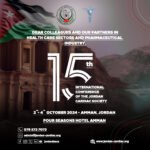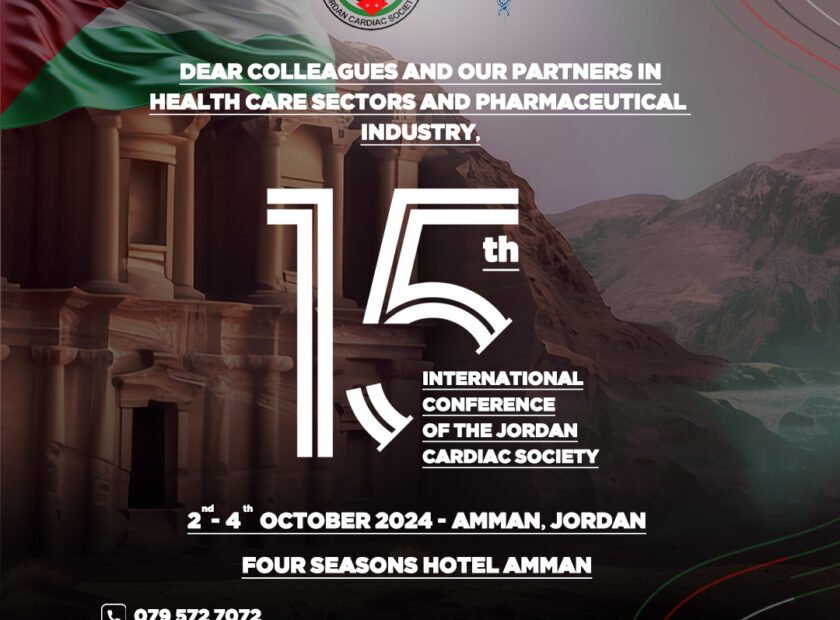
The Cardiology 26 /Feb 2024
The Cardiology
Conference in Irbid concluded today. This was the second event organized by the Jordanian cardiac society(JCS) to promote scientific research in provinces outside Amman, following a cardiology workshop in Mafraq. The conference was held in Irbid, marking the first of its kind in this location after the capital.
Today, the Jordanian cardiac society held a conference in Irbid Governorate, under the patronage of Dr. Ziad Al-Zoubi, the President of the Jordan Medical Association, discussing “What’s New in Cardiology.” The event saw participation from a group of cardiologists and specialists in various heart-related fields. This is part of the association’s plan to extend its scientific activities to the provinces, covering adult and pediatric cardiology, in addition to electrophysiology and interventional treatments for heart diseases.
This is the second tour since the beginning of the scientific season about three months ago. A workshop on ECG studies was held in Mafraq Governorate a few weeks ago for doctors in the province. In the coming weeks, a scientific day will be held in Balqa/Al-Salt Governorate, with participation from the Jordanian cardiac society through a selection of cardiologists. This will be followed by another conference in Mafraq, Ajloun, and Jerash, God willing.
From the highlights of the Irbid Cardiology Conference organized by the Jordanian Cardiac Society:
1. There was great enthusiasm among the participating doctors at the conference, reflected in the number of attendees and the balanced scientific discussions during its events. Besides being a scientific addition, it was an excellent means of communication among colleagues in the country and agreeing on practical solutions.
2. It was noted that there is a necessity to unify approaches in dealing with hypertension patients, determining when to start medication, and the required tests. This serves the patient and considers medical advancements in treating chronic diseases like hypertension, acknowledging the varied medical schools of thought in the East and West, reflecting the cultures, capabilities, and available resources of different peoples.
3. On the sidelines of the conference discussions, the Jordanian Cardiac Society will issue non-binding treatment guidelines for doctors to follow in treating common heart diseases in Jordan. This aims to unify treatment approaches in emergencies and other situations, considering the country’s capabilities and conditions, facilitating patient care quickly, with less effort and cost.
4. There was criticism of the government for not providing essential medications for treating arrhythmias and heart electrical issues without justification for a long period.
5. Recent studies on pediatric heart diseases in Jordan were presented, showing that the most common condition is a ventricular septal defect, according to statistics from Al-Bashir Hospital.




